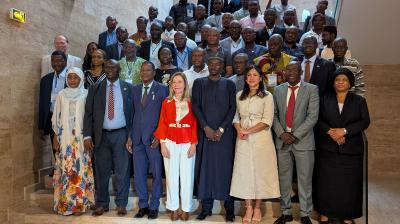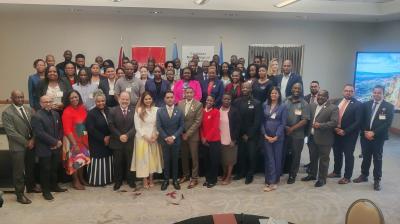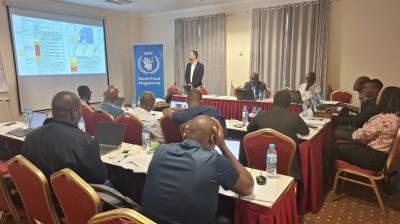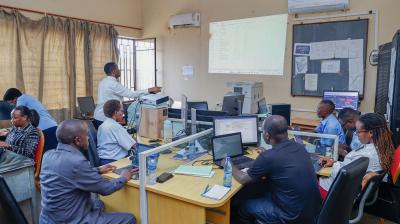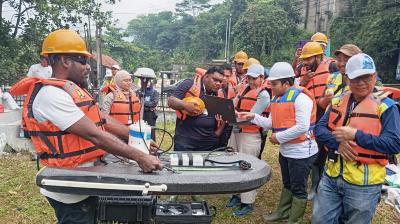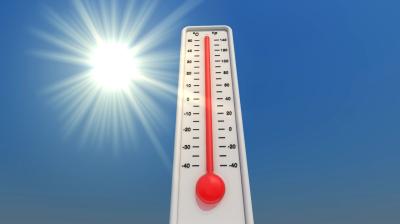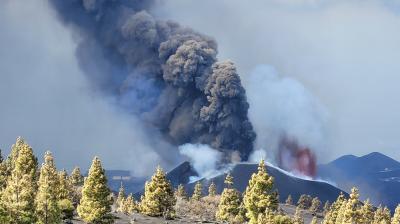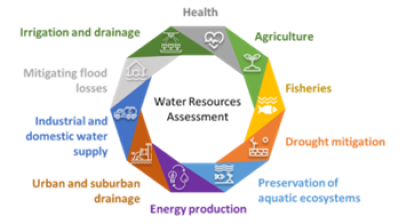UN Water Conference calls for accelerated action
The first UN water conference in a generation, the UN 2023 Water Conference, opens 22 April. It will be a watershed moment to mobilize Member States, the UN system and stakeholders to take action and bring successful solutions to a global scale. A top-level WMO delegation is at the conference in New York to call for united water and climate action and for Early Warnings for All against increasing water-related hazards

The first UN water conference in a generation, the UN 2023 Water Conference, opens 22 April. It will be a watershed moment to mobilize Member States, the UN system and stakeholders to take action and bring successful solutions to a global scale.
A top-level WMO delegation is at the conference in New York to call for united water and climate action and for Early Warnings for All against increasing water-related hazards.
Water is a dealmaker for the Sustainable Development Goals, and for the health and prosperity of people and planet. But progress on water related goals and targets (SDG6) remains alarmingly off track, jeopardizing the entire sustainable development agenda.

UN Secretary-General António Guterres called for a “bold Water Action Agenda that gives our world's lifeblood the commitment it deserves. »
The World Water Conference is co-hosted by the Netherlands – a low-lying country exposed to rising sea levels – and Tajikistan, where retreating glaciers lead to an increase in short-term water hazards and the threat of long-term water insecurity. It opens on World Water Day, which this year has the theme Accelerating Change.
Ahead of the conference the annual World Water Development report warned of an imminent risk of a global water crisis.
Between two and three billion people worldwide experience water shortages. These shortages will worsen in the coming decades, especially in cities, if international cooperation in this area is not boosted, warns the report by UNESCO and UN-Water.
The global urban population facing water scarcity is projected to potentially double from 930 million in 2016 to between 1.7 and 2.4 billion people, in 2050.
WMO statement
“The water crisis, exacerbated by climate change, is undeniably one of the most pressing challenges that the world is facing today. More and longer droughts, an increase in frequency and severity of devastating floods, extreme weather and compound events are placing enormous pressure on water resources, making it increasingly difficult to achieve the Sustainable Development Goals,” said a WMO Secretary-General Prof. Petteri Taalas in a submission prepared for the conference.
“However, water can also be a part of the solution to mitigate and adapt to the impacts of climate change and ensure sustainable development. Smart water management can reduce and capture greenhouse gas emissions, increase climate and disaster risk resilience, support ecosystem integrity and biodiversity, and ensure food and energy security, just to name a few,” said the statement.
The World Meteorological Congress has endorsed the WMO Water Declaration to accelerate implementation of SDG 6, reflecting the top priority given to water. WMO facilitates global observation networks in real-time to enable countries to monitor, predict, and prepare for weather, climate, water, and atmospheric composition changes.
Today, more than 60% of WMO Member States report insufficient and declining capabilities in hydrological monitoring, only half of WMO Members report having an operational Multi Hazard Early Warning System in place, making it increasingly difficult to provide decision support in water-related sectors such as food production, energy security, health, economic development and climate change resilience.
This situation is unacceptable and unsustainable in the 21st Century and poses a significant threat to the Sustainable Development Agenda. Insufficient and declining monitoring leads to knowledge gaps and poorly informed policy and decision making.
Commitments
In response, WMO Members have committed to implement better water information services for all through the Global Hydrological Status and Outlook System (HydroSOS) and the annual State of Global Water Resources Report, which assesses status of water resources and provide outlooks at seasonal to sub-season time scales considering the effects of climatic, environmental, and societal changes on the Earth's freshwater resources.
The implementation of HydroSOS worldwide, which integrates the best available data using remote sensing, Earth observations and models, will be a transformative game changer and this commitment was submitted to the Water Action Agenda. It will significantly improve Member States’ capability to address the increasing demand for water, manage the impacts of climate change while ensuring sustainable ecosystems.

The second commitment of WMO to the Water Action Agenda addresses the UN Secretary-General's call to ensure that every person on Earth is protected by early warning systems within five years. Therefore, the organization will continue to enhance Earth system observations, monitoring and
forecasting for floods and droughts worldwide, and research to develop approaches for efficient forecasting systems which are robust to climate and other environmental and societal changes.
For both commitments monitoring and sharing of data is key. Therefore, the recently approved Global Basic Observing Network, so-called GBON, supported by the WMO Unified Data Policy, sets international rules for exchanging critical data for saving lives and support sustainable development. The implementation will strengthen the knowledge about all Earth-system components, with massive socioeconomic benefits as a result of delivering better, more accurate and timely weather, hydrology and climate-related services to all.
“We invite now all UN Member States and other partners to cooperate and prioritize the implementation of these commitments through strengthening the National Meteorological and Hydrological Services so we can ensure water security for all people and future generations,” said the WMO statement.
See also
Flagship UN report extolls win-win water partnerships to avert global crisis | UN News
5 things you should know about the UN 2023 Water Conference | UN News


